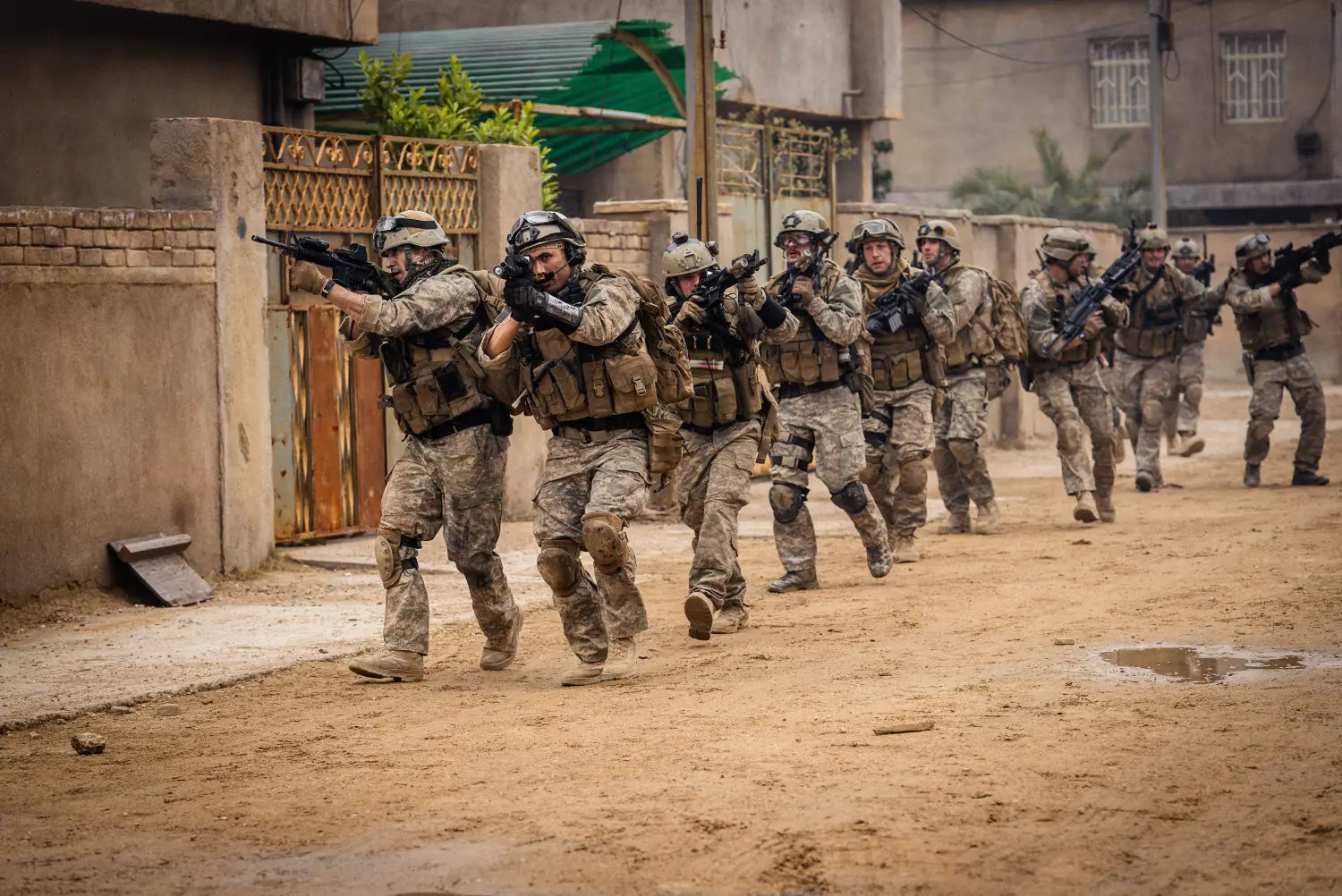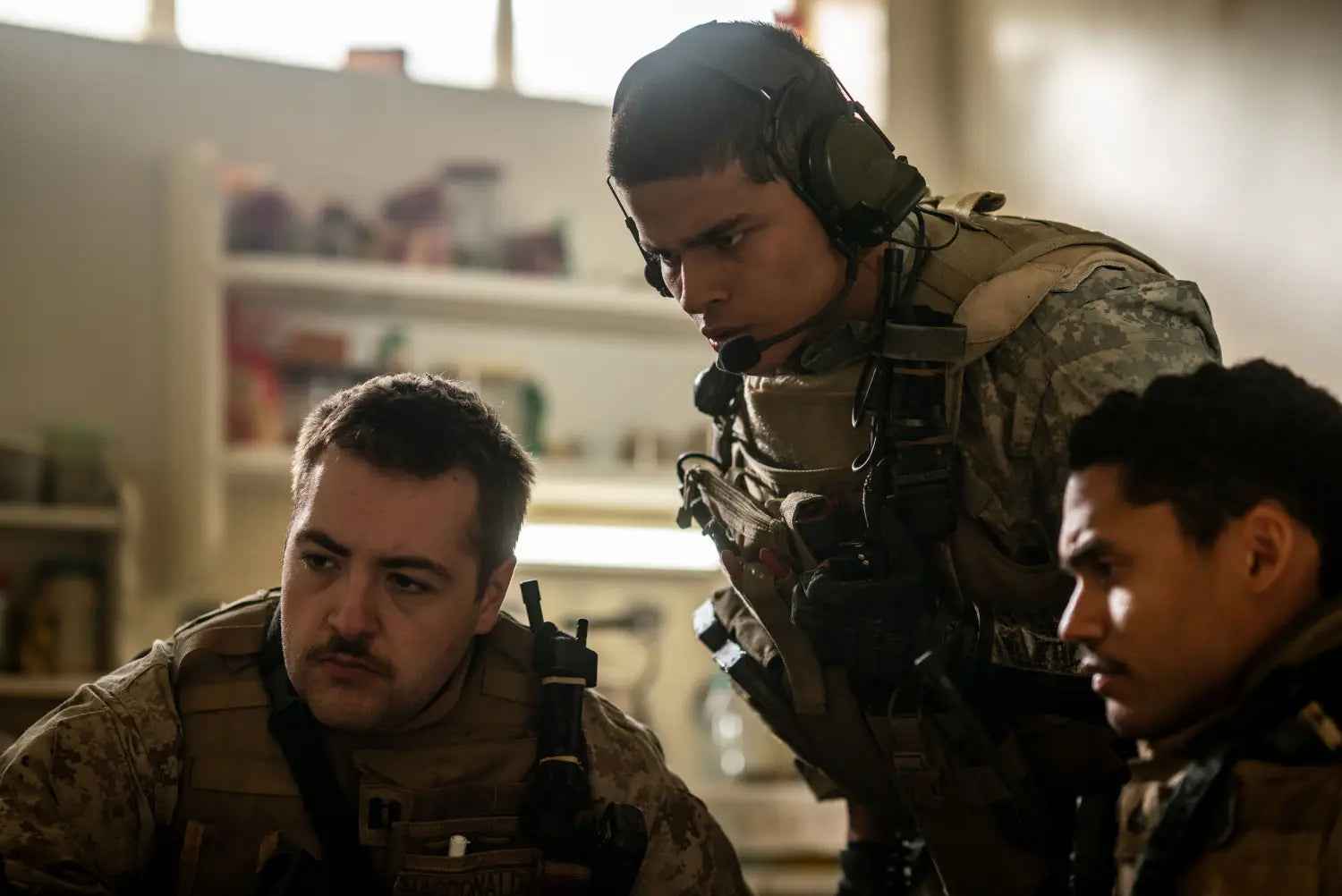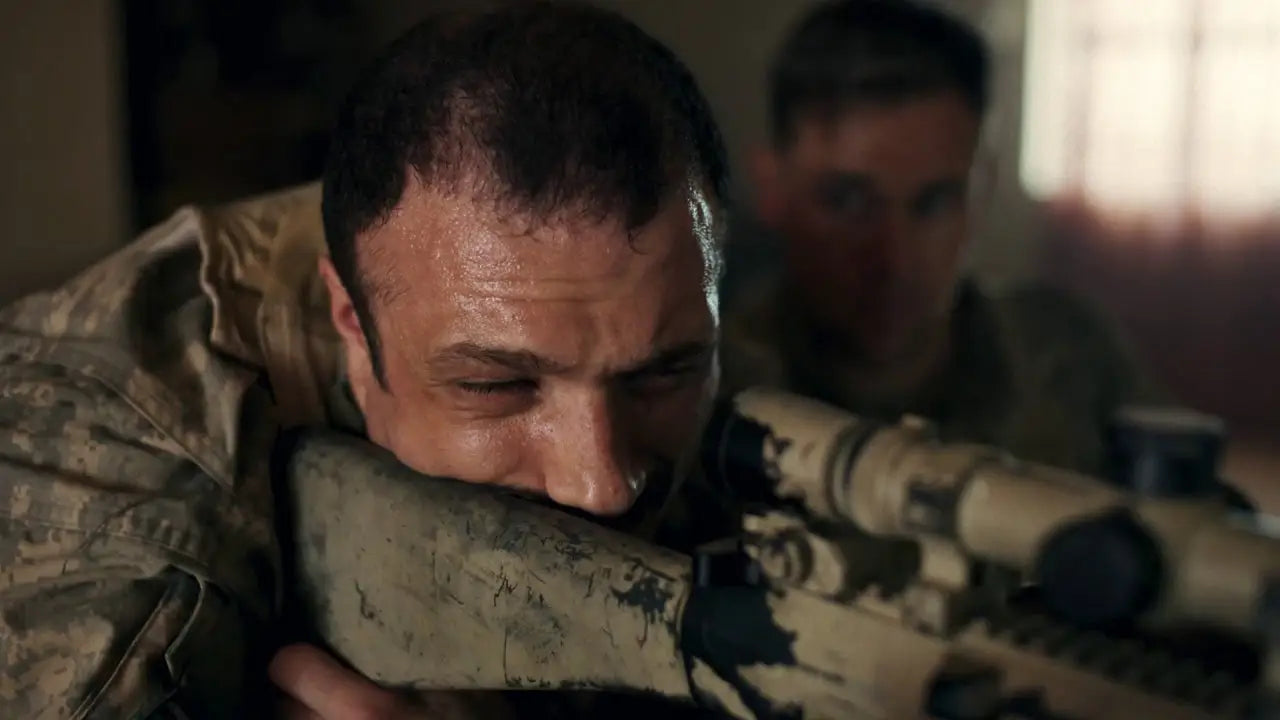War films have long occupied a curious space in cinema. For as long as the medium has existed, artists have tried to make sense of the senseless, to portray the horrors of combat with the gravitas and respect they deserve. The results have been wildly inconsistent. For every film that wrestles earnestly with the brutality of war, there are several more that fall into the trap of glamorization - turning battlefields into action set pieces and soldiers into mythic heroes. And even the most critically lauded examples (Saving Private Ryan, Black Hawk Down, The Hurt Locker) walk a fine line between authentic representation and jingoistic spectacle.
Warfare arrives with that legacy weighing heavily on its shoulders. It’s a film that knows the minefield it’s walking into - pun fully intended - and yet presses forward anyway, fully aware that any attempt to make a film about war, especially the still-recent Iraq War, is going to spark debate. But Warfare doesn’t aim to settle any of those arguments. In fact, it barely participates in them. Real-life Navy SEAL Ray Mendoza writes and directs the film alongside filmmaker Alex Garland (Civil War), pulling directly from his own memories and those of his fellow platoon members about one particularly harrowing incident during their time in Iraq.
This is not a film about “why” the Iraq War happened or what its global or political consequences were. It’s not even really about who was right or wrong. It doesn’t try to moralize or contextualize. It doesn’t offer answers. It hardly asks questions. It simply exists - as a stark, often brutal reenactment of a singular mission gone sideways, told from the subjective memories of the men who lived it.

Set in Ramadi in the early years of the U.S. occupation, Warfare drops us in with a platoon of Navy SEALs with minimal setup. One moment, they’re laughing and watching suggestive aerobic videos in their base with club music blaring. The next, they’re moving with deadly precision under cover of night into a residential apartment building. Their mission is vague, and the film keeps it that way. There’s no grand speech. Just orders. Objectives. Coordinates.
What follows is a slow-burn descent into chaos. The soldiers take over a civilian home - one still occupied by an Iraqi family - and begin their surveillance. They post up. They wait. They write down notes. They listen. They report. The mundanity of this occupation is depicted with a painful precision - checking the same window again and again, listening to static-filled radio chatter, resisting the urge to blink too long. It's in this excruciating first stretch that Warfare feels most effective, because it understands how so much of war is just waiting for something to go horribly wrong. And eventually, it does.
When the first wave of attack hits, Warfare explodes into one of the most overwhelming, disorienting combat sequences in recent memory. The film’s technical prowess, particularly its sound design, becomes its deadliest weapon. Every ricochet, explosion, and distant shout feels like it’s happening in the room with you. Mendoza and Garland’s team use this overstimulation to great effect - mirroring the psychological dissociation many soldiers experience in moments of extreme trauma. Time stretches and collapses. Focus blurs. Characters zone out completely. And yet, they continue. They move. They shoot. They survive.

The editing in Warfare - contrary to some early speculation - is not exactly in real time, but it often feels like it is. The film’s formal style embraces a documentary-like immediacy without resorting to shaky cam or gimmicks. It’s immersive and tactile but never showy. The production design, especially the apartment building and the war-torn street it sits on, is breathtakingly authentic. You feel the claustrophobia of the tight hallways, the dread of each corner turned. Outside, the wide-open street offers no relief - just a different kind of vulnerability. There is no safety here.
What sets Warfare apart from other modern war films is its refusal to give you a character to cling to. There’s no clear protagonist. No emotional throughline. No manipulative arc. The camaraderie among the SEALs is present, but subtle. You glean pieces of who these men are through their behavior and interactions with one another, not their backstories. One young soldier shakes with fear during a lull in the fighting. Another cracks a dark joke to relieve the tension. One gently helps another clean his wound. That’s it. And somehow, it’s enough.
Amidst all the chaos and carnage is one quietly damning element that lingers like a ghost: the Iraqi family trapped inside the apartment. They’re not a subplot. They hardly speak or even move. But their presence is constant. They are the unspoken victims of this entire ordeal, shoved into a room while war rages in and around their home. The film never cuts away to show their inner lives, but the symbolism is clear and devastating. The SEALs enter, take over, leave destruction in their wake, and move on. The family stays behind, forever changed - or worse.

Warfare may strip away politics on the surface, but it’s impossible to view this story as apolitical. The nature of its subject demands interpretation. In trying to remain neutral, the film paradoxically forces the viewer to bring their own conclusions, their own guilt, their own anger. It refuses to speak for itself. Instead, it bears witness - raw, unfiltered, and deeply unsettling.
It would be easy to critique Warfare for what it doesn’t do - no commentary, no structure, no emotional payoff. But that would be missing the point. This isn’t a film about resolution. It’s about recollection. It’s about honoring memory, not through patriotic reverence, but through unflinching reconstruction. Whether or not that approach resonates with you may depend on what you expect from war cinema. But there’s no denying its power and effectiveness at what it’s attempting.
In the end, Mendoza and Garland’s film lingers in your mind not because of its action, but because of its silence. The silence between gunfire. The silence of the family. The silence of a country and its people forever scarred. Warfare doesn’t ask for your applause. It barely asks for your attention. But it deserves both.
'Warfare' is now playing in theaters.




